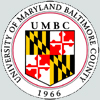| |||||||||||||||||||||
Tips:  Range on the Protein: Protein ID Protein Position Domain Position: 
|
|---|
Weblogos are Copyright (c) 2002 Regents of the University of California
| DMDM_info@umbc.edu | 1000 Hilltop Circle, Baltimore, MD 21250 | Department of Biological Sciences | Phone: 410-455-2258 |




 Beta1,3-glucuronyltransferase I (GlcAT-I) is involved in the initial steps of proteoglycan synthesis. Beta1,3-glucuronyltransferase I (GlcAT-I) domain; GlcAT-I is a Key enzyme involved in the initial steps of proteoglycan synthesis. GlcAT-I catalyzes the transfer of a glucuronic acid moiety from the uridine diphosphate-glucuronic acid (UDP-GlcUA) to the common linkage region of trisaccharide Gal-beta-(1-3)-Gal-beta-(1-4)-Xyl of proteoglycans. The enzyme has two subdomains that bind the donor and acceptor substrate separately. The active site is located at the cleft between both subdomains in which the trisaccharide molecule is oriented perpendicular to the UDP. This family has been classified as Glycosyltransferase family 43 (GT-43).
Beta1,3-glucuronyltransferase I (GlcAT-I) is involved in the initial steps of proteoglycan synthesis. Beta1,3-glucuronyltransferase I (GlcAT-I) domain; GlcAT-I is a Key enzyme involved in the initial steps of proteoglycan synthesis. GlcAT-I catalyzes the transfer of a glucuronic acid moiety from the uridine diphosphate-glucuronic acid (UDP-GlcUA) to the common linkage region of trisaccharide Gal-beta-(1-3)-Gal-beta-(1-4)-Xyl of proteoglycans. The enzyme has two subdomains that bind the donor and acceptor substrate separately. The active site is located at the cleft between both subdomains in which the trisaccharide molecule is oriented perpendicular to the UDP. This family has been classified as Glycosyltransferase family 43 (GT-43). No pairwise interactions are available for this conserved domain.
No pairwise interactions are available for this conserved domain.














